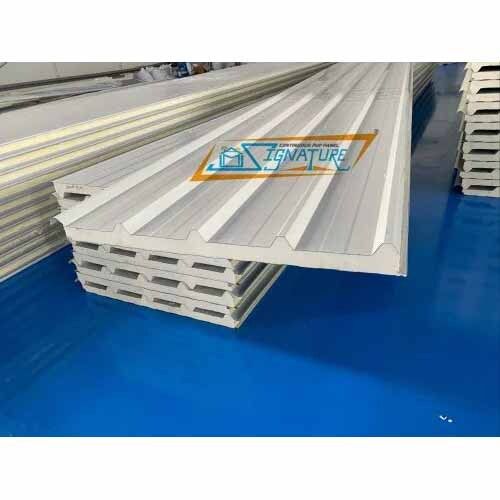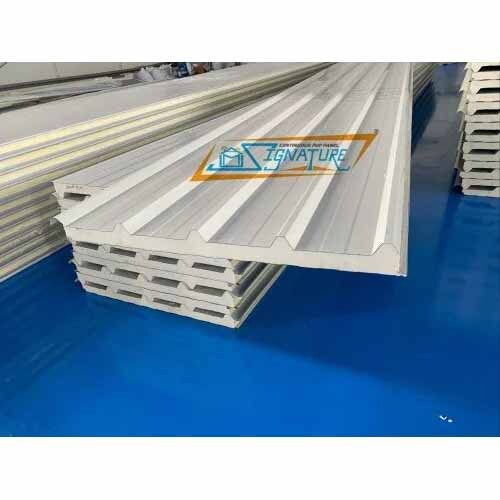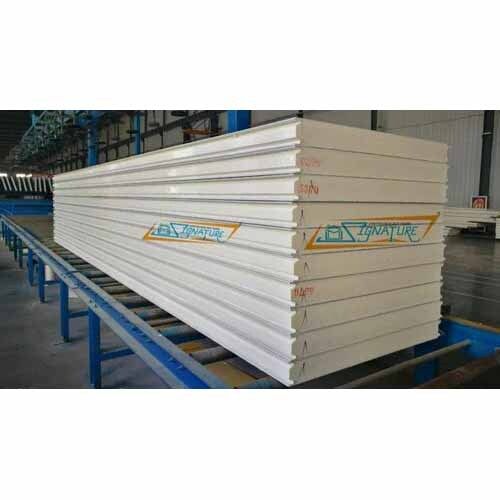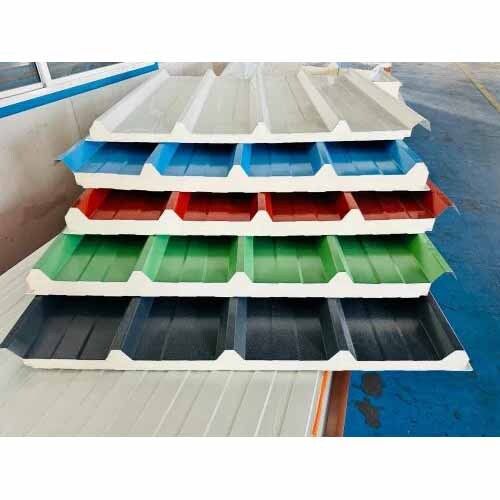- PUF Panels
- Insulated Roof Panels
- Porta Cabins
- Prefab Shelters
- Bunk Houses
- Cold Storage Room
- Labour Huts
- Double Storey Building
- Cold Room Storage Doors
- Operating Theatre Room
- Insulated Panels
- Prefabricated Buildings
- Sandwich Panels
- Walk In Freezer
- Roofing Sheet
- Prefabricated House
- Portable Cabin
- Prefabricated Structure
- Puf Sandwich Panel
Insulated Roofing Panel
Product Details:
- Material PUF
- Type Roof Insulated Panel
- Size Standard
- Shape Rectangular
- Thickness 0.40 mm Millimeter (mm)
- Click to View more
Insulated Roofing Panel Price And Quantity
- 200 Square Meter
- 990 INR/Square Meter
Insulated Roofing Panel Product Specifications
- 0.40 mm Millimeter (mm)
- Roof Insulated Panel
- PUF
- Standard
- Rectangular
Insulated Roofing Panel Trade Information
- 5000 Square Meter Per Month
- 7 Days
Product Description
FAQs for Roof Insulated Panel?
Q. What are Roof Insulated Panels made of?
A. Roof Insulated Panels typically consist of a core material, such as rigid Polyurethane Foam (PUF) or Polyisocyanurate (PIR), sandwiched between two outer layers of metal, often steel or aluminum. These layers are coated to provide additional protection against the elements.
Q. What are the benefits of using Roof Insulated Panels?
A. Roof Insulated Panels offer excellent thermal insulation, which helps in reducing energy costs for heating and cooling. They are also lightweight, easy to install, and provide superior durability and weather resistance. Additionally, they offer sound insulation, contributing to a quieter indoor environment.
Q. Are Roof Insulated Panels suitable for all types of buildings?
A. Yes, Roof Insulated Panels are versatile and can be used in a variety of building types, including industrial, commercial, and residential structures. They are especially beneficial for applications that require strong thermal insulation and rapid installation.
Q. How do Roof Insulated Panels contribute to energy efficiency?
A. The core insulation material in Roof Insulated Panels significantly reduces thermal bridging, ensuring that less heat is transferred through the roof. This helps maintain a stable indoor temperature, reducing the need for additional heating or cooling and lowering energy consumption.
Q. Can Roof Insulated Panels be customized to fit specific design requirements?
A. Yes, Roof Insulated Panels are available in various thicknesses, dimensions, and finishes. They can be tailored to meet specific architectural and structural requirements, offering flexibility in design while maintaining their functional benefits.

Price:
- 50
- 100
- 200
- 250
- 500
- 1000+







 Send Inquiry
Send Inquiry Send SMS
Send SMS Call Me Free
Call Me Free
